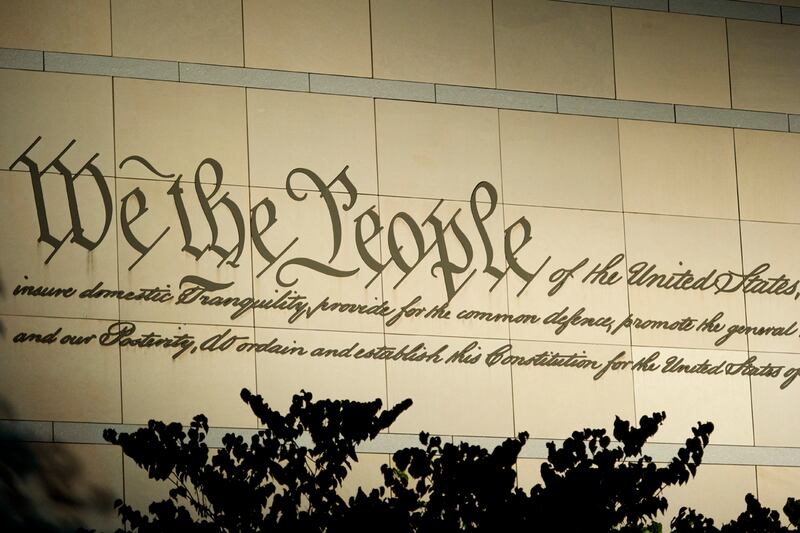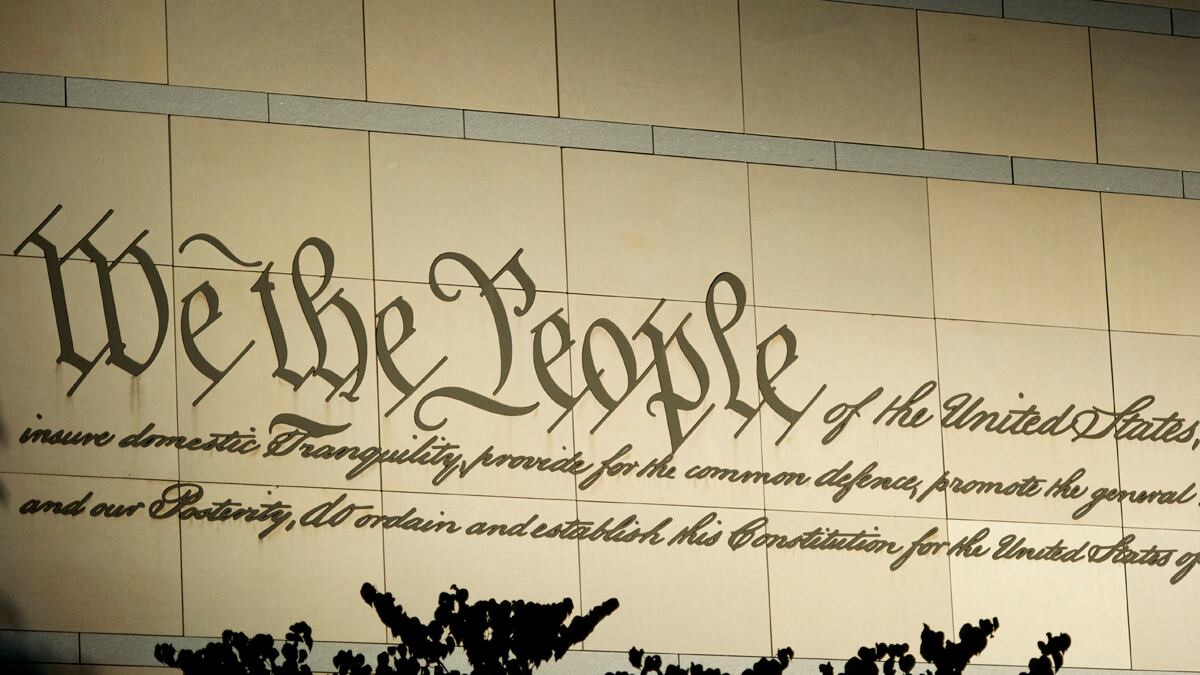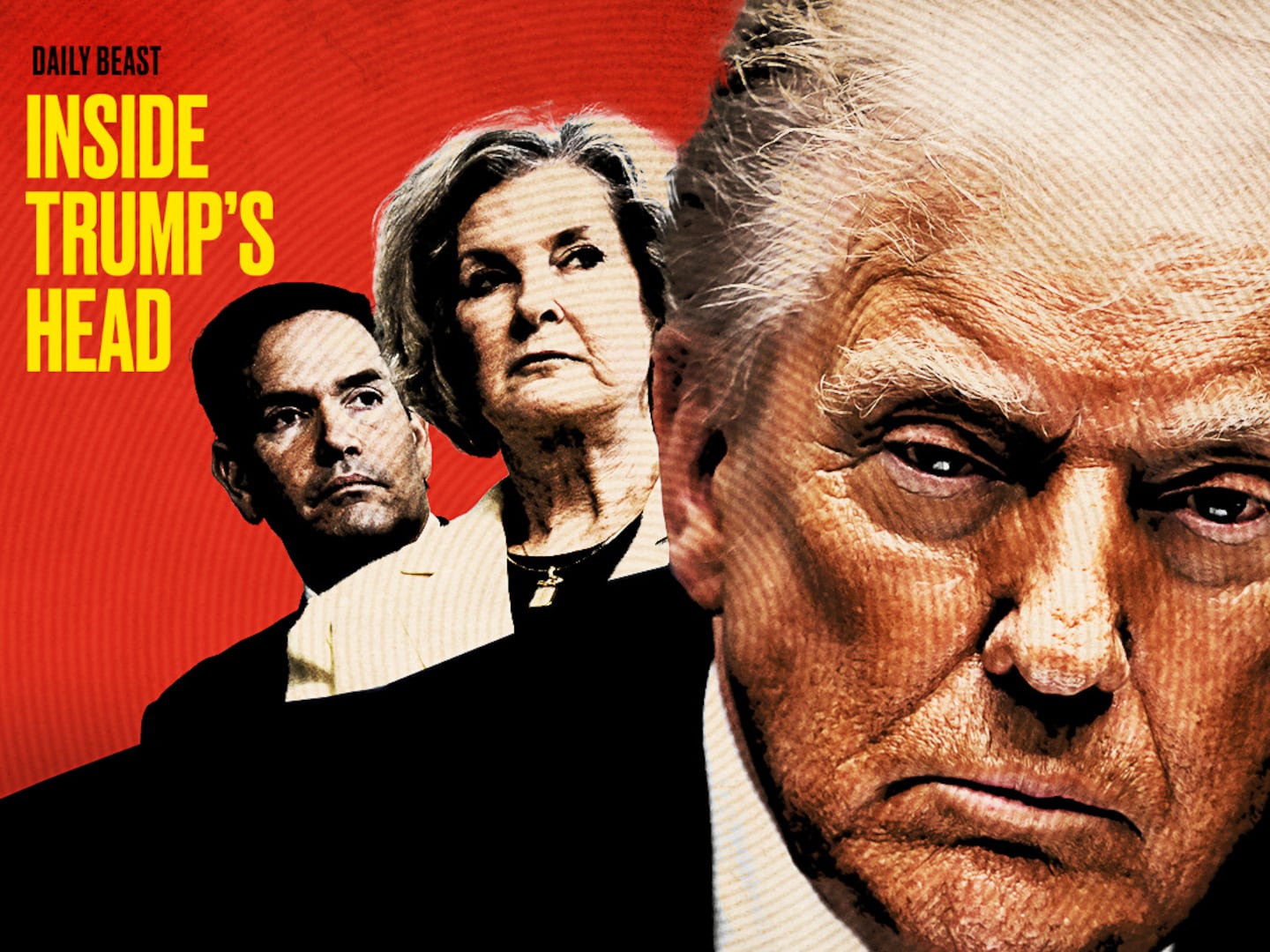The Spirit of 75, Thrice Over: Why Obama Is Constitutionally Superior to Romney
For serious constitutionalists, this has been the week.
Exactly 225 years ago this past week, the Philadelphia framers published their proposed Constitution proposing more democracy than the world had ever seen. Exactly 75 years to the week later—that is, precisely 150 years ago—President Lincoln went public with his preliminary Emancipation Proclamation. Soon thereafter, slavery was constitutionally abolished immediately and everywhere in America. And 75 years after Lincoln’s initial Proclamation (and thus 75 years ago) President Franklin Roosevelt delivered a famous Constitution Day Address in mid-September 1937 explaining how a document born in the age of the horse-and-buggy still remains vital and relevant in the modern era.
What do these major anniversaries tell us about the choices we must make today? In particular, how does the 2012 presidential race look if seen through the prism of our triple anniversary?
Start with the founders, who offered up an audacious plan that began with the words “We the People”—not “We, the property” or “We, the corporations, my friend.” While many of the leaders at Philadelphia were the cream of society—the 1 percent of 1787—some of the best of them were wholly self-made, such as Ben Franklin, Alexander Hamilton, and James Wilson. Most important of all, the Philadelphia framers put their proposed Constitution to an extraordinarily wide-open continental vote, in which ordinary property qualifications were abolished or reduced in most states. Compared to the rest of the world circa 1787, and compared to prior practice in America, the Constitution was an extraordinarily populist project. We the People, indeed.
Now flash-forward to the present moment. Republicans have plotted in several key states to restrict voting rights, through byzantine laws and regulations that go far beyond any legitimate interest in stemming voter fraud. Shame on these partisans. And shame on Mitt Romney for not speaking out forcefully against his party’s vote-suppressing agenda.

True, the Constitution’s leading man in 1787, George Washington, was a conservative of sorts. But he was a revolutionary conservative, willing to risk his life, his fortune, and his sacred honor to vindicate the grand idea of republican self-government. At his death, he provided for the freeing of his slaves. He consistently put country first. As a successful planter/businessman in the years preceding the Revolutionary War, he had made personal economic sacrifices to promote the general welfare, and during the war itself he suffered enormous privations to serve the Union.
Four years ago, the Republican presidential nominee, John McCain, could plausibly present himself to his fellow citizens as a man who, like Washington, had walked the walk of his country-first vision of patriotic sacrifice. But when it comes to personal sacrifice for the sake of the republic, Romney is no McCain, and no Washington.
And in fact, in key respects, McCain was no Washington either on the other key attribute that made Washington Washington—steadiness. Like the mercurial McCain, Romney has run an erratic campaign, filled with unforced errors by the candidate himself. Washington could inspire with words when the need arose; but most of the time, Washington simply exuded quiet strength. "No Drama" Obama, in this respect, is more Washingtonian—projecting a calm steadiness of purpose and character. Romney, by contrast, has both failed to speak when he needed to (about his taxes, for example) and failed to hold his tongue when he should have—as in the early stages of the Benghazi tragedy.
Consider next the great constitutional changes foreshadowed by Lincoln’s Emancipation Proclamation: a 13th Amendment abolishing slavery; a 14th Amendment guaranteeing equal citizenship for blacks and women; and a 15th Amendment permitting blacks to vote and hold office equally alongside whites. Barack and Michelle Obama are living embodiments of the grand promise of these amendments. Mitt and Ann Romney—not so much.
It is worth recalling that these amendments were adopted only because Lincoln won reelection 1864, despite the fact that it was not clear that Americans in 1864 were better off than in 1860. But whose fault was that? In the end, voters decided that the anti-Lincoln party bore most of the blame. This party had pursued reckless anti-equality policies in the decade before Lincoln’s election; and major chunks of this party had in fact precipitated a crisis (a.k.a. secession) by refusing to acknowledge the very legitimacy of Lincoln’s election in 1860. (Sound familiar?) Despite massive suffering in America in 1864, voters decided that Lincoln was on the right path and that his opponent—George McClellan, an arrogant and wealthy martinet who showed little understanding of the lives of the less privileged—would simply return America to the very mess that Lincoln had been elected to clean up.
There are also uncanny parallels between the present moment and 1937. Then, as now, a reformist president faced a Supreme Court dominated by appointees of the opposite political party, and many in the opposite party implausibly claimed the reformer’s ideas were flat-out unconstitutional. And if Obama does manage to win reelection with a majority of the popular vote behind him, he will be the only Democratic president since the time of Lincoln to win the popular vote twice—other than FDR.
In his 1937 Constitution Day chat, Roosevelt defended Obamacare—er, the New Deal—against constitutional critics by reminding his audience that the Constitution had been designed to confer broad power on the federal government to address genuinely federal problems. But FDR missed a golden opportunity to point out that the Constitution that he had sworn to uphold was importantly different from the one that Washington and Lincoln had promised to protect and defend. FDR’s Constitution—and ours, today—contains a 16th Amendment that was undeniably drafted to bless a progressive income tax; and a 19th Amendment giving women the vote. Together, these two amendments—especially the 19th—are central pillars supporting the Obama candidacy. Women voted overwhelmingly for Franklin and Eleanor in 1937 and are apparently poised to do so again for Barack and Michelle.
Of course, history never repeats itself exactly. But serious constitutionalists believe that the past—even the distant past—can powerfully guide the present. If there is a strong case that Mitt Romney is the man who best vindicates the greatest constitutional ideas of Washington’s generation, of Lincoln’s, and of the 20th-century progressives who amended the Constitution yet again, I have yet to hear it.






